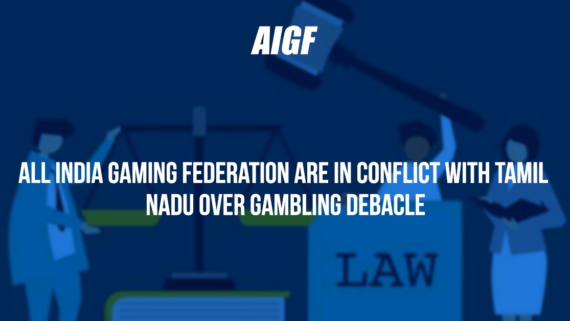Online sports legislation can encourage local investment, leading to the development of technology, income generation, and job creation. The general monitoring process is therefore essential for monitoring online sports and preventing crime.
Virtual Gaming In India – A Legal Enigma
People of all ages around the world play for fun and entertainment. The online gaming market in India has been very strong in recent months. The advancement of technology and digital has changed the Indian gaming industry. Online gambling has become a very fast-growing industry and there is still room for growth as the majority of India’s population is young and smartphones and the internet have become retail even in rural and remote areas.
Online sports legislation can encourage local investment, leading to the development of technology, income generation, and job creation. The general monitoring process is therefore essential for monitoring online sports and preventing crime.
The obvious question of the fuss is whether internet / online gaming is legal in India. Sadly, the answer isn’t exactly given to India’s old and tough sporting standards.
Online Casinos / Gambling
Online gambling is one of the fastest-growing areas of the online gaming industry. There is no clear answer as to whether online gambling is legal in India. It’s a bit of a gray area.
Indian law gives each state the power to make its law. There are several state-specific variances as a result of this.
Game of Skill vs Game of Chance
An experiment used by the Supreme Court of India to determine whether an online game falls under the category of wagering, for example, should be restricted, is a test of skill vs chance. Whether an online gaming application is a game of skill or a game of chance is a difficult one.
The Karnataka Police (Amendment), 2021
Recently, the government of Karnataka passed the Karnataka Police (Amendment) Act 2021, which prohibits all forms of online games or any form of online gambling, including in-state gambling. The government has also banned online games that include “virtual currency [or] electronic transfer of funds in conjunction with any game of chance” has also been prohibited by the government.
The law of this amendment is now in question. The petitioners, the All India Gaming Federation, have requested instructions from the state to restrict regulatory changes to the police law affecting online gaming and to refrain from complying with the law while the request is pending. The petitioners argued that every playing card has a sufficiently significant responsibility to remove it. This does not negate the fact that Bridge or Rummy is a game of skill. Just because there is a chance doesn’t mean that it is a less competent game of skill. The Constitution has been opposed because the courts have tried for years to differentiate between the games of skill and the games of chance. As the court carried out this exercise after defining the terms “games of skill” and “games of chance”, the government of Karnataka decided to ban all games associated with gambling in the declining national economy. A practice that is clearly stated in Article 14 of the Constitution of India.
Fantasy Sports
Before delving into the rules of fantasy sports, it’s important to understand what these are. Simply put, fantasy games are online games where players create virtual teams and compete for points. These terms can be used in a variety of ways, including cash and cash equivalents.
In the absence of government policy in India, an autonomous body, the Federation of Indian Fantasy Sports (FIFS) is responsible for regulating high standards of work and protecting the interests of users of fantasy sports.
A significant contention for dream sports is that dream sports ought to be barred from state wagering law since they generally work similarly. Skill and playing skills are regularly prohibited from the idea of play.
Conclusion
The current circumstance under India’s online wagering enactment can be hurtful to the nation’s economy. The nation has a hearty online wagering sector, and local casino sites may give huge tax revenue to the country. It will likewise dissuade Indian residents from playing at illegal gambling club destinations genuinely where their cash and security are in more danger of being hurt. The need to secure players is basic, yet there might be options in contrast to out and out disallowances on online gaming. Governing rules, then again, could well be carried out. State rules administering online gaming are very old and obsolete, and they should be acclimated to reflect contemporary gaming. Cash inclusion in online games isn’t consistently dangerous, given adequate safeguards are followed, and subsequently, such games don’t need to be taboo.
Credits: Mondaq











Comments
Comments are closed.